The Proverbs of Hell 8/39: Fromage
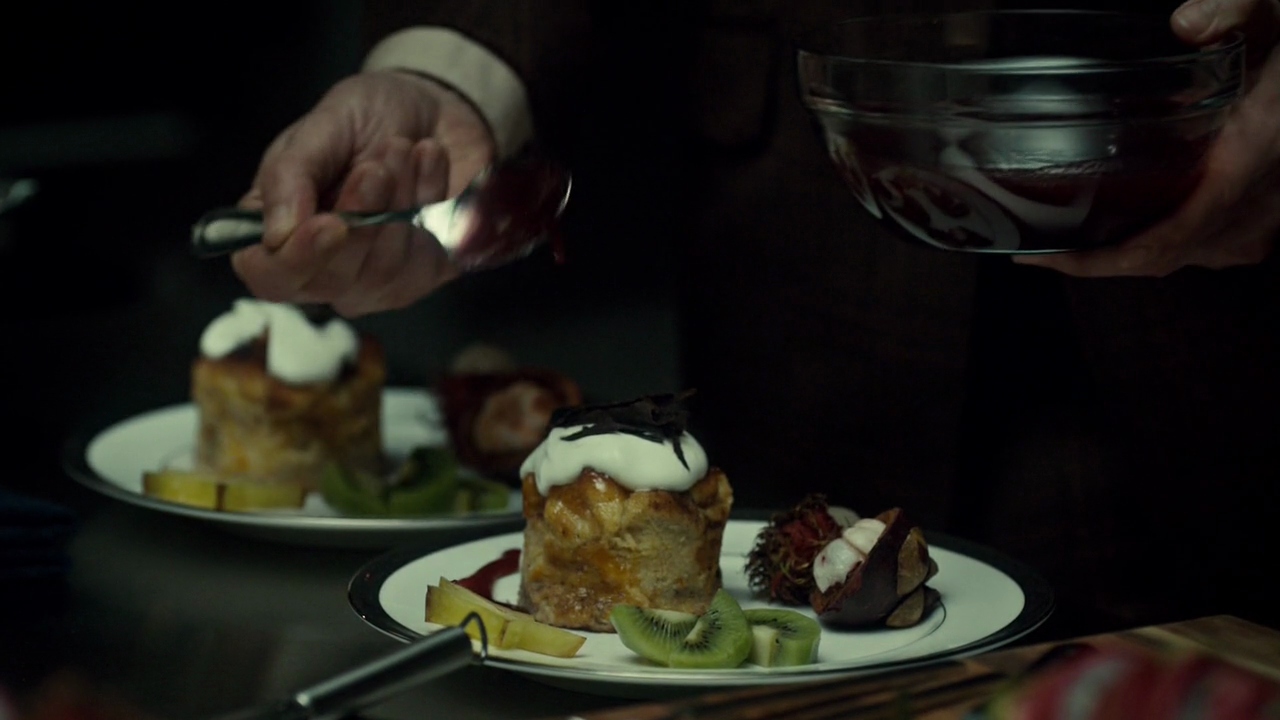 FROMAGE: Cheese. Relating this directly to the episode contents is tricky – it’s most likely a reference to Franklyn’s declaration last episode that he and Hannibal are “cheese-folk,” although it’s certainly possible Fuller imagined this episode to be somehow cheesier than previous ones. I mean, it does involve opening people up and playing them like cellos.
FROMAGE: Cheese. Relating this directly to the episode contents is tricky – it’s most likely a reference to Franklyn’s declaration last episode that he and Hannibal are “cheese-folk,” although it’s certainly possible Fuller imagined this episode to be somehow cheesier than previous ones. I mean, it does involve opening people up and playing them like cellos.
The soft-focus montage of stringmaking plays out over an unusually harmonious bit of music, making this particular process of dismembering people and repurposing their bodies an oddly pleasant, idyllic thing. It is worth contrasting with Blake’s The Marriage of Heaven and Hell, in which his (non-murderous) printmaking process is detailed as the workings of “a printing press in hell,” whereas here infernal content is presented in more sacred terms.
ALANA BLOOM: Why are you assuming I don’t date?
WILL GRAHAM: Do you?
ALANA BLOOM: No. Feels like something for somebody else. I’m sure I’ll become that somebody some day but right now I think too much.
WILL GRAHAM: Are you going to try to think less or wait until it happens naturally?
ALANA BLOOM: I haven’t thought about it.
For the episode where the Will/Alanna sexual tension is finally grappled with Alanna, perhaps unsurprisingly, reverts to her manic pixie dreamgirl characterization. This is in many ways the least interesting available choice, and the two omitted lines from the script in which Will and Alanna talk about the difficulty of dating “ when you notice everything they do and have a pretty good idea why they do it” would have been considerably more interesting than just highlighting the lame joke.
FRANKLIN: I Googled psychopaths. Went down the checklist and was a little surprised how many boxes I checked.
HANNIBAL: Why were you so curious to Google?
FRANKLIN: He’s been saying very dark things and then saying just kidding. A lot. Started to seem kinda crazy.
HANNIBAL: Psychopaths are not crazy. They’re fully aware of what they do and the consequences of those actions.
Hannibal’s instinctively sticking up for psychopaths is cute, as is his carefully threaded needle of what does and does not constitute being “crazy.” For Hannibal, intentionality is a warrant of sanity. It is, of course, also the case that intentionality is a prerequisite for art – it’s only when we assume an author or artist who has crafted a deliberate “design” that it becomes possible for something to be art as opposed to merely aesthetically pleasing. Artists, then, cannot possibly be crazy to Hannibal.
WILL GRAHAM: I wanted to play him. I wanted to create a sound.
It is worth contrasting the motivation here with the Hannibal-influenced presentation of the murder. What Tobias wants to do is to create an entirely ephemeral event bounded precisely in time. The tableau, however, is a decidedly different aesthetic goal – a lasting monument to the murder. This is worth considering in light of “Sorbet”’s discussions of theatricality, as many of the same issues apply, but here there’s an added tension between two very distinct conceptions of art-murder – one in which it’s visual, one musical.…

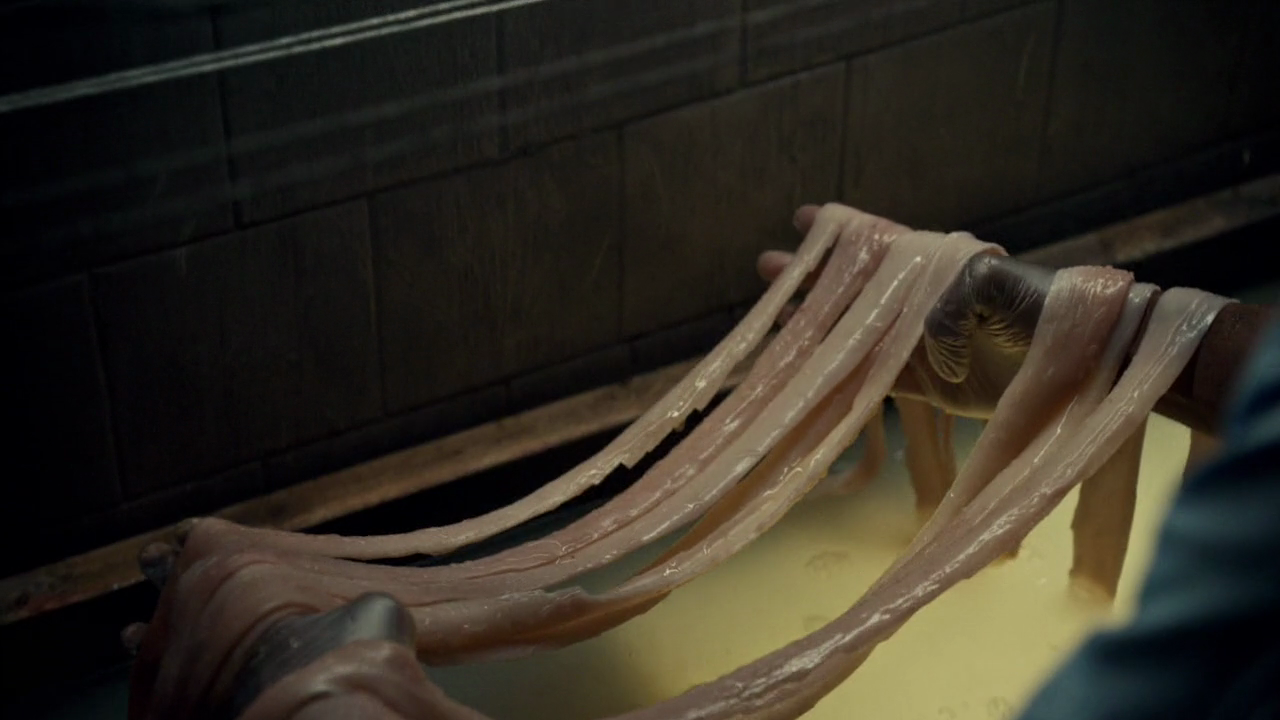
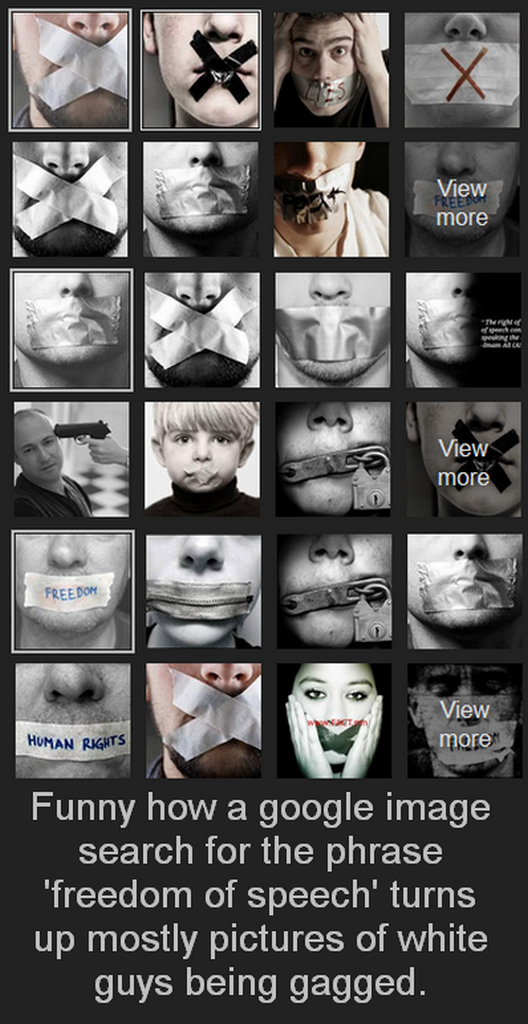 Helloesville, my little chickadees, have a 32nd Shabcast. Why not?
Helloesville, my little chickadees, have a 32nd Shabcast. Why not? 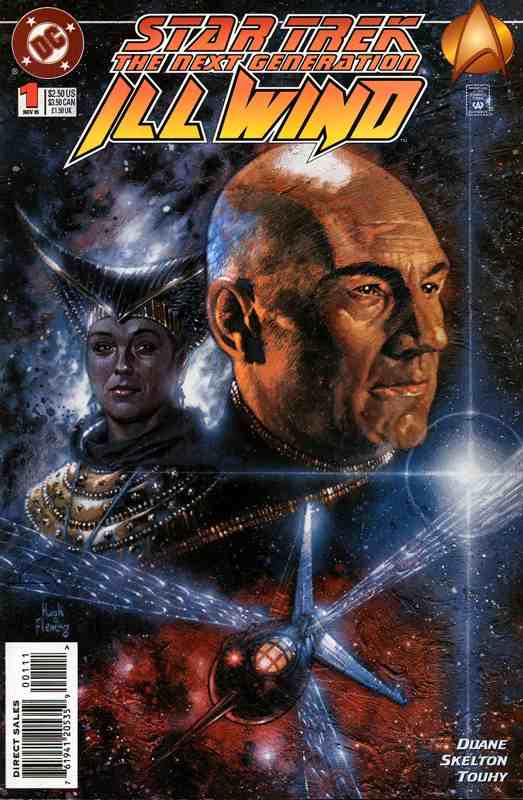 A sense of vastness and cosmic wonder. One almost expects a haunting synthesizer remix of “Space…The Final Frontier” to play over this resplendent scene of the Great Interstellar Dark. But instead, it’s a caption box reciting John Masefield’s “Sea-Fever”. Slightly stilted and hokey, but perhaps evocative in its own way.
A sense of vastness and cosmic wonder. One almost expects a haunting synthesizer remix of “Space…The Final Frontier” to play over this resplendent scene of the Great Interstellar Dark. But instead, it’s a caption box reciting John Masefield’s “Sea-Fever”. Slightly stilted and hokey, but perhaps evocative in its own way.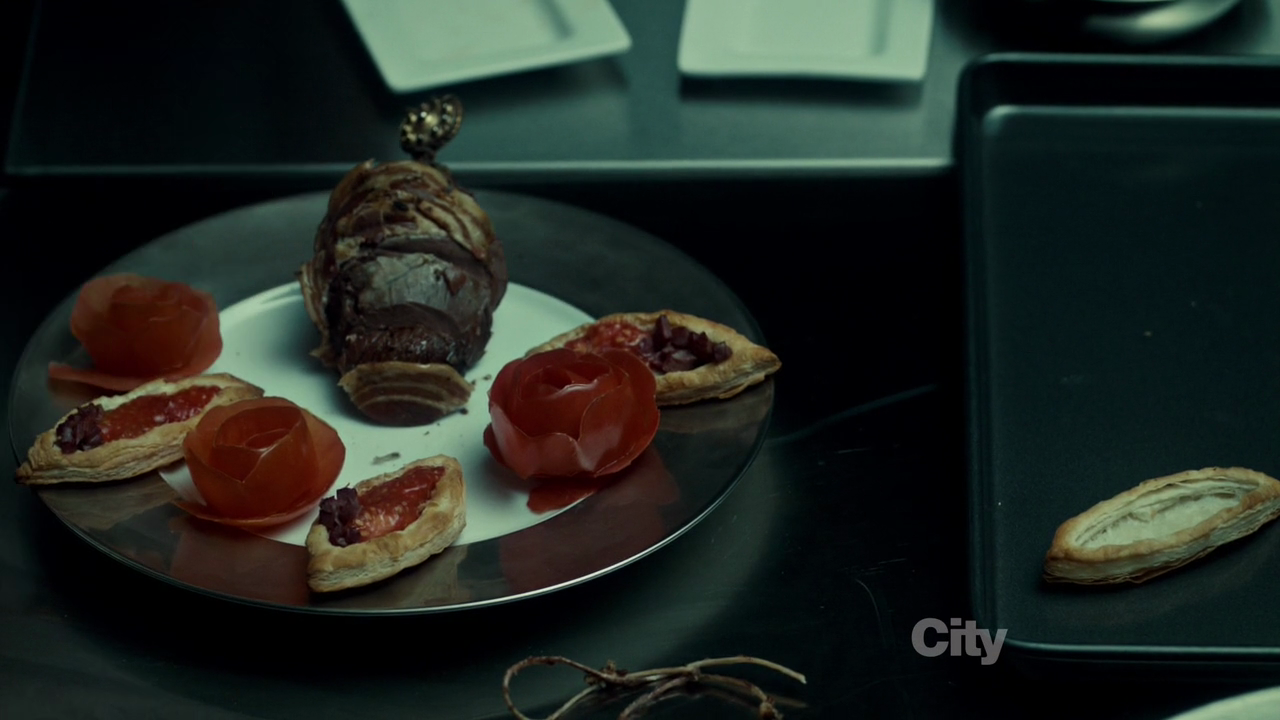 SORBET: A frozen dessert made of sweetened, flavored water. In this case, it seems meant to suggest a palate cleanser, resetting the meal after the extremes of “Entrée.”
SORBET: A frozen dessert made of sweetened, flavored water. In this case, it seems meant to suggest a palate cleanser, resetting the meal after the extremes of “Entrée.”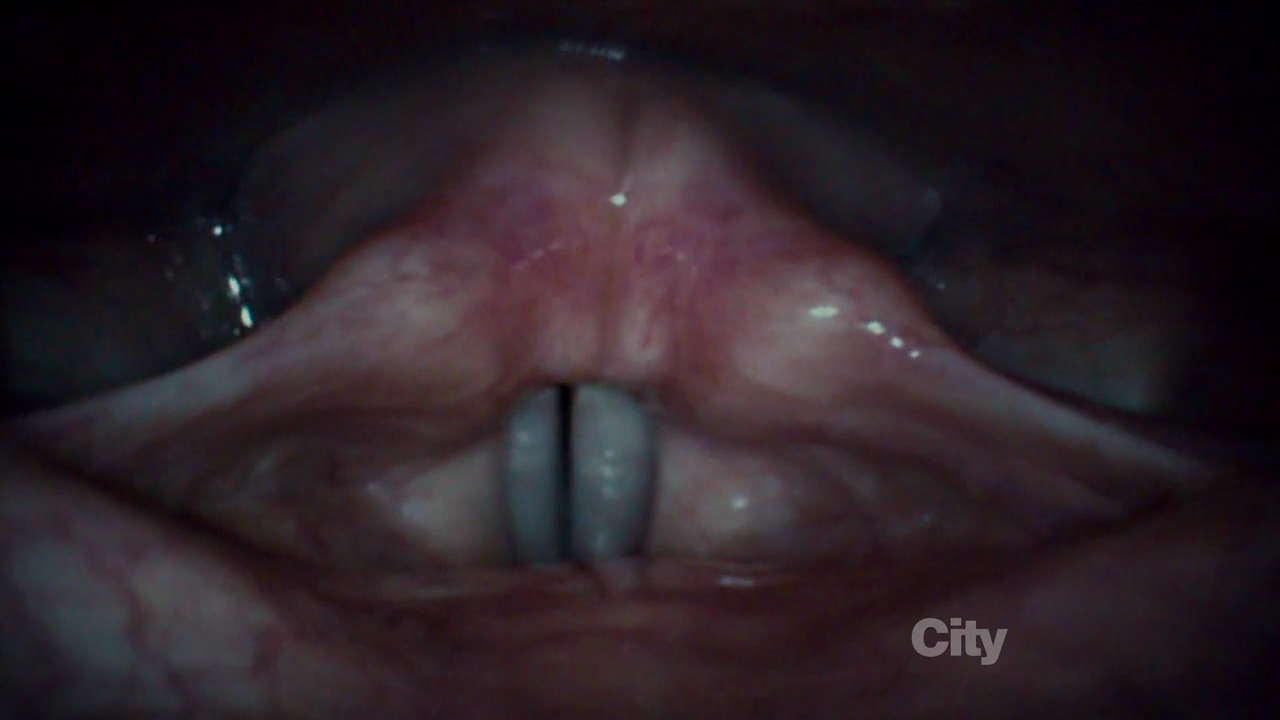
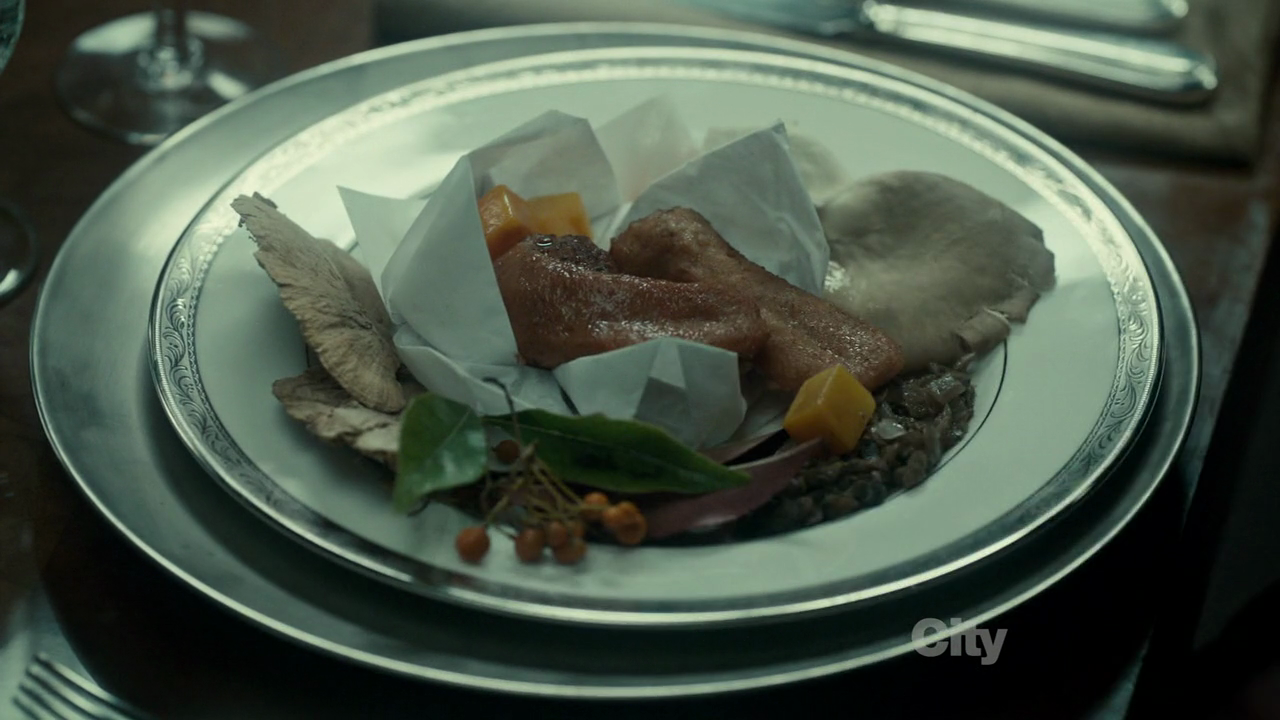 ENTRÉE: With the episode titles in French, this does not carry the English meaning of “main course” per se, but rather refers to a transitional course between fish and meat dishes. In truth the meaning is double, flagging this episode’s status as a transitional one in the season and its status as the first one since “Aperitif” to be focused entirely on the arc plot.
ENTRÉE: With the episode titles in French, this does not carry the English meaning of “main course” per se, but rather refers to a transitional course between fish and meat dishes. In truth the meaning is double, flagging this episode’s status as a transitional one in the season and its status as the first one since “Aperitif” to be focused entirely on the arc plot.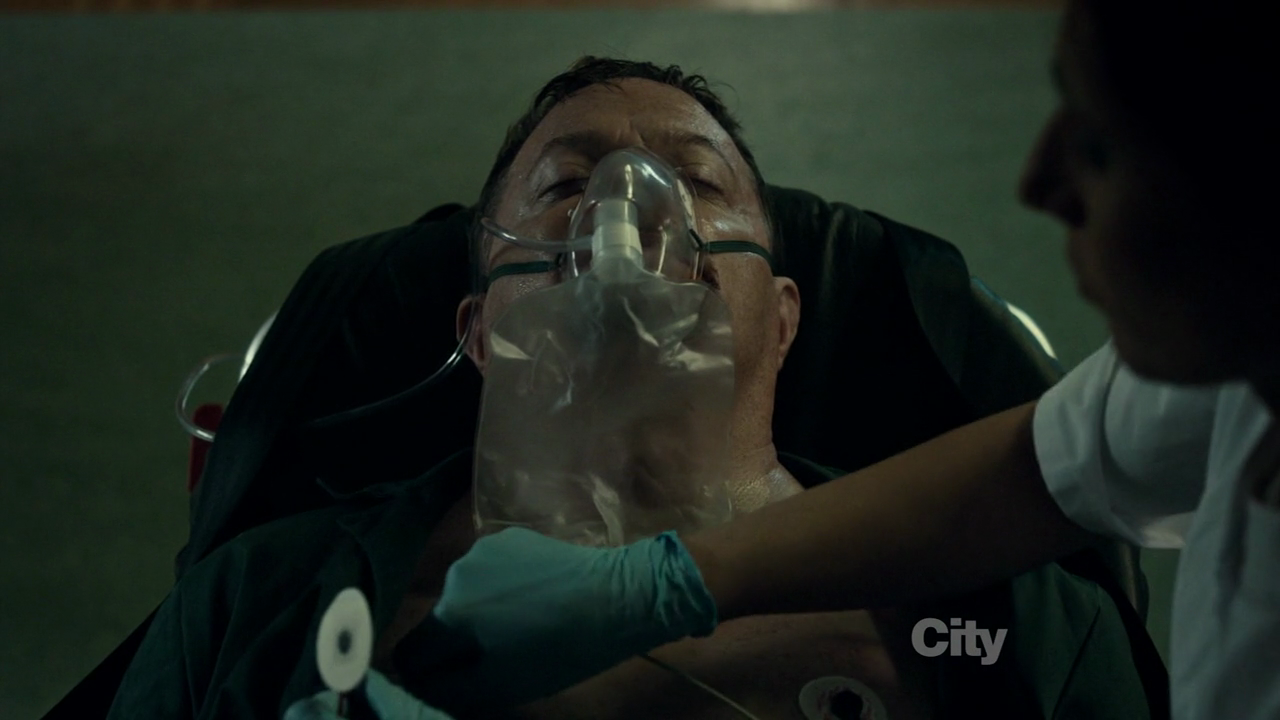
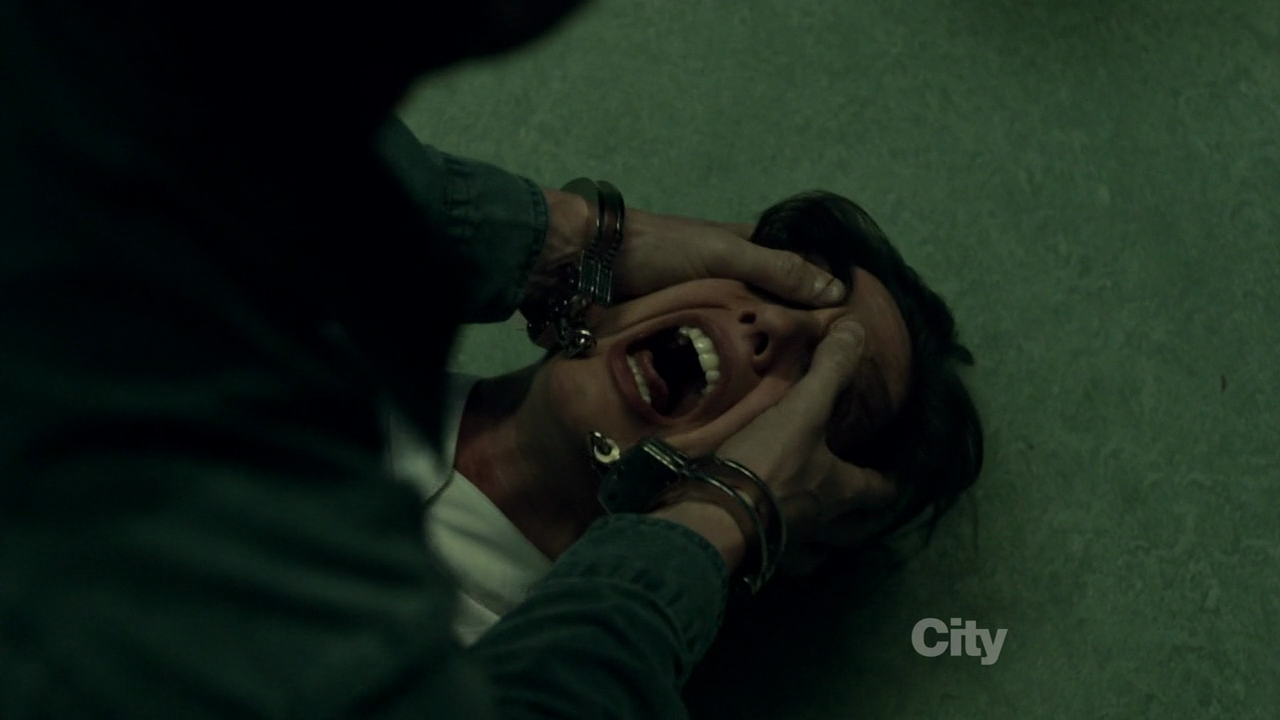
 Hello, just a heads up from me today about the existence of the fourth episode of Wrong With Authority, the podcast about movies about history, hosted (in turns) by myself, Kit Power, James Murphy, and Daniel Harper.
Hello, just a heads up from me today about the existence of the fourth episode of Wrong With Authority, the podcast about movies about history, hosted (in turns) by myself, Kit Power, James Murphy, and Daniel Harper.